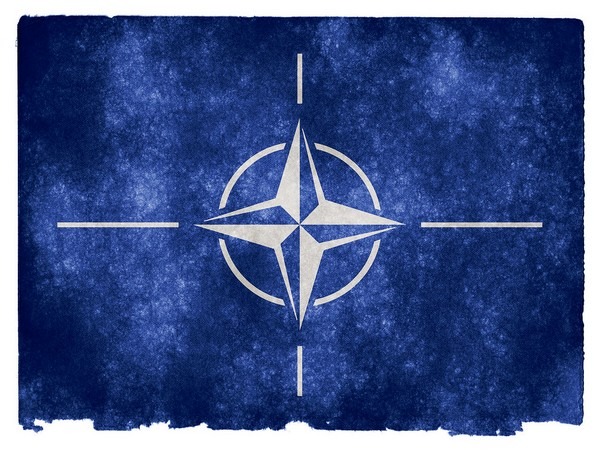FACTBOX-Russia seen as 'direct threat' in NATO's new strategy, China a 'challenge'
The alliance did not dare formulate a fresh strategy while U.S. President Donald Trump, a NATO critic who threatened to leave the alliance in 2018, was in office, diplomats and officials said. RUSSIA The new strategic concept document accuses Russia of seeking "to establish spheres of influence and direct control through coercion, subversion, aggression and annexation". NATO says Moscow applies conventional military, cyber and hybrid means to reach these goals.

NATO agreed on a new strategic concept on Wednesday that describes Russia as "the most significant and direct threat to allies' security and stability", reflecting a grave deterioration in the alliance's relations with Moscow over the past decade. In 2010, when leaders agreed to the alliance's last master document setting out its vision for NATO, they aimed to build a long-term partnership with their old Cold War adversary. Dmitry Medvedev, Russia's president at the time, was present at the Lisbon summit where it was agreed.
China was not even mentioned in the 2010 strategy, seen in the West as a benign trading partner and manufacturing base. It is now described as a challenge to NATO's "interests, security, and values", as an economic and military power that remains "opaque about its strategy, intentions and military build-up". The following is a list of NATO's new positions as cited in the new, 10-page strategic concept, as well as an explanation of what role these concepts play for the alliance.
NATO'S STRATEGIC CONCEPTS The strategic concept sets the alliance's areas of focus and is updated roughly once a decade. The document, which is made public, gives guidance that is then translated into political and military action.
NATO's last strategic concept was drafted when the alliance was engaged in a US-led fight against Taliban militants and a democracy-building mission in Afghanistan. It was four years before Russia's annexation of Crimea in 2014 which triggered a return for NATO to its roots of collective defense rather than "out of area" crisis management beyond its borders. A 2022 concept has been long overdue. The alliance did not dare formulate a fresh strategy while U.S. President Donald Trump, a NATO critic who threatened to leave the alliance in 2018, was in office, diplomats and officials said.
RUSSIA The new strategic concept document accuses Russia of seeking "to establish spheres of influence and direct control through coercion, subversion, aggression, and annexation".
NATO says Moscow applies conventional military, cyber and hybrid means to reach these goals. "Moscow's military build-up, including in the Baltic, Black, and the Mediterranean Sea regions, along with its military integration with Belarus, challenge our security and interests", the strategic concept says. It also expresses concern over the modernization of Russia's nuclear forces, Moscow's threats to use nuclear weapons, and the development of "novel and disruptive dual-capable delivery systems", a reference to the development of hypersonic weapons that can carry both conventional and nuclear warheads.
Russia accuses NATO of threatening European security by expanding eastwards since the mid-1990s. In response to Russia's moves, NATO will significantly strengthen its deterrence and defense, the document says while stressing that the alliance does not seek confrontation with Moscow, instead of seeks dialogue.
"We remain willing to keep open channels of communication with Moscow to manage and mitigate risks, prevent escalation and increase transparency," the strategic concept says. CHINA
China is mentioned for the first time in NATO's strategic concept. Beijing's "stated ambitions and coercive policies challenge our interests, security, and values", the document says. The concept accuses China of using malicious hybrid and cyber operations, confrontational rhetoric, and disinformation to target NATO allies and harm NATO's security. China denies any such tactics.
The document also touches upon China's economic ambitions, stating Beijing was seeking to control key technological and industrial sectors, critical infrastructure, and strategic materials and supply chains. "It uses its economic leverage to create strategic dependencies and enhance its influence," the concept says.
"It strives to subvert the rules-based international order, including in the space, cyber and maritime domains." It also expresses concern over closer ties between Moscow and Beijing that are "mutually reinforcing attempts to undercut the rules-based international order". NATO says it will remain open to constructive engagement with China but also boost awareness and enhance its preparedness against Beijing's "coercive tactics and efforts to divide the alliance".
(This story has not been edited by Devdiscourse staff and is auto-generated from a syndicated feed.)
ALSO READ
World Bank allocates USD 16 million to support women-led businesses in Afghanistan
China & Vietnam navigate through South China Sea differences amid heightened Beijing-Manila conflict
Afghanistan presses for resolution of migrants issue with Pakistan
As Yellen heads to Beijing, China worries that the U.S. is planning more tariffs on green tech
Ramzan: Three killed during evening prayers in Farah province of Afghanistan










